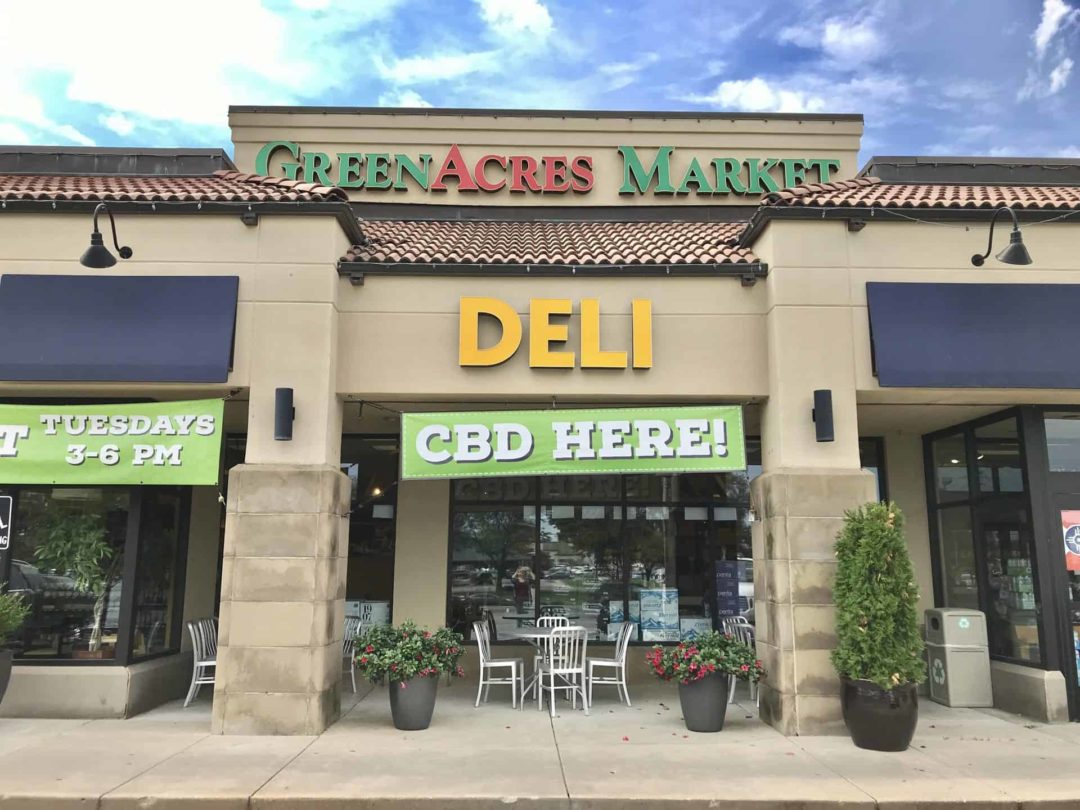Talks of e-commerce circulated through management at GreenAcres Market, Wichita, Kansas, six months ago. Now, eight weeks have passed since the 25-year-old natural products store opened its e-commerce site, and it’s going well, according to Shawna Thompson, Systems Administrator, GreenAcres Market.
The pandemic expedited their onboarding schedule because customers were requesting curbside pickup and delivery. While management talked with a few e-commerce services, GreenAcres ended up choosing Mercato for its quick setup period. Since their start two months ago, the store doubled its online orders.
The U.S. online grocery market was estimated to generate sales worth of about $28.68 billion U.S. dollars in 2019, with a sales forecast estimated to reach $59.5 billion U.S. dollars by 2023.
But that was before the pandemic.
“Online grocery sales were expected to make up 10% of all sales by 2024, now it will be closer to 20% by 2024,” says Justine Bockman, Inbound Marketing Manager, Mercato. “A lot of stores are already reaching 10% of online sales now.”
In a March 2020 survey by Coresight, about 50% of respondents said they purchased groceries online. Whether the online grocery trend will continue post-pandemic? Only time will tell. But some analysts expect online shopping habits to stay.
Mercato, the double marketer, hosts e-commerce sites while acquiring both merchants and customers to use their platform. Primarily working with independent grocers, the company has been known to support specialty, independent grocers, butchers, cheese shops, and seafood markets.
“The whole natural grocery space is exploding, even outside of e-commerce. As a result we’re talking with more organic and natural grocers,” says Bockman.
Within the last 3 months, Mercato has doubled its merchants—going from 600 users of their platform before February to 1200 today—and supported an increase of 7,000% of sales. They attribute the successful scalability of the platform to the infrastructure of the service. With their 2-day onboarding process, it’s appealing to small-, medium- and regional- sized markets, now that consumers are minimizing out-of-home trips.
Going Online There are a couple ways of going online, and it depends on the store’s setup. Do you have a point of sale system (POS)? Have you had an e-commerce site before? These are important questions to take into consideration as you on-board to an online sales operation. The answers to these questions will determine how much setup fees cost and how long it’ll take to get online. One thing is for certain, Mercato estimates sales to increase anywhere from 15-30% after onboarding.
“If a store is not online at all, we will ask them if they have a POS file in house. If so, we can work with the POS vendor to get the products online. We have an entire catalog of images and descriptions of products, totaling 1 million,” says Bockman.
For the stores who are smaller and have a good amount of specialty and homemade items, onboarding usually takes a bit longer since every product needs to be photographed and built out, explains Bockman. Piecemeal, however, is always an option. She advises that stores with a ton of specialty items can start with the essentials and get their online store up and running.
Instead of the typical hot-selling grab-and-go products, items like paper products, soups, flours, baking needs, and essential cooking needs have gobbled up most of the sales at GreenAcres, notes Thompson. Fresh produce, she adds, has been flying off the shelves because everyone wants fresh and healthy ingredients.
For GreenAcres, the onboarding process was complete in 2 weeks. The natural products store sells produce, vitamins, supplements, health & beauty aids, and deli items. They opened up in 1994 and have 7 locations spanning Kansas, Missouri and Oklahoma.
Being Prepared + Keeping up with Quality Increasing sales 15-30% is a big deal, and there are operational changes that need to happen in order to transition smoothly. Merchants have to incorporate a new workflow.
"The only concern we had was making sure we had the manpower to handle our orders," said Thompson. Because of the pandemic, GreenAcres has been able spread out online order fulfilling amongst its current staff.
As online orders become more popular and service requests increase, hiring an employee solely for e-commerce is an option some retailers invest in. Since Mercato doesn’t supply 3rd party shoppers, grocers are able to keep order fulfilling personal.
“We’re picky with our customers and want to communicate with them. If grapes are not great, we offer something else. We like to be able to customize,” says Thompson.
"We provide them with a dedicated account manager because we want to ensure when they add this service, they can keep up with orders," says Bockman. Orders can come in via fax, text, phone, email, store employees take the order and fulfill it, then, Mercato drivers will deliver the order. Since Mercato doesn’t supply shoppers, the order fulfilling falls on the hands of the store employees—which happens to be one of the reasons why merchants like Mercato.
“Some of the top merchants use giveaways, personal touches make a big difference," Bockman explains. "They’ll throw in thank you cards, notes, best wishes, thanks for thinking of shopping local during this time. Perhaps throwing in something from the bakery. Personalization is key."
Advice for Retailers With several e-commerce options out there, retailers should make sure the platform fits the store’s needs, Thompson advises. For their store, quick onboarding, training, and customer service were determining factors in their final choice.
“E-commerce is important and easy.” Going forward, Thompson adds, “Consumers are realizing how easy it is to incorporate e-commerce into their habits. Especially new customers—a lot of customers have never done it, and now they say they may not go back into the store.”
For more information, visit mercato.com/merchant.










